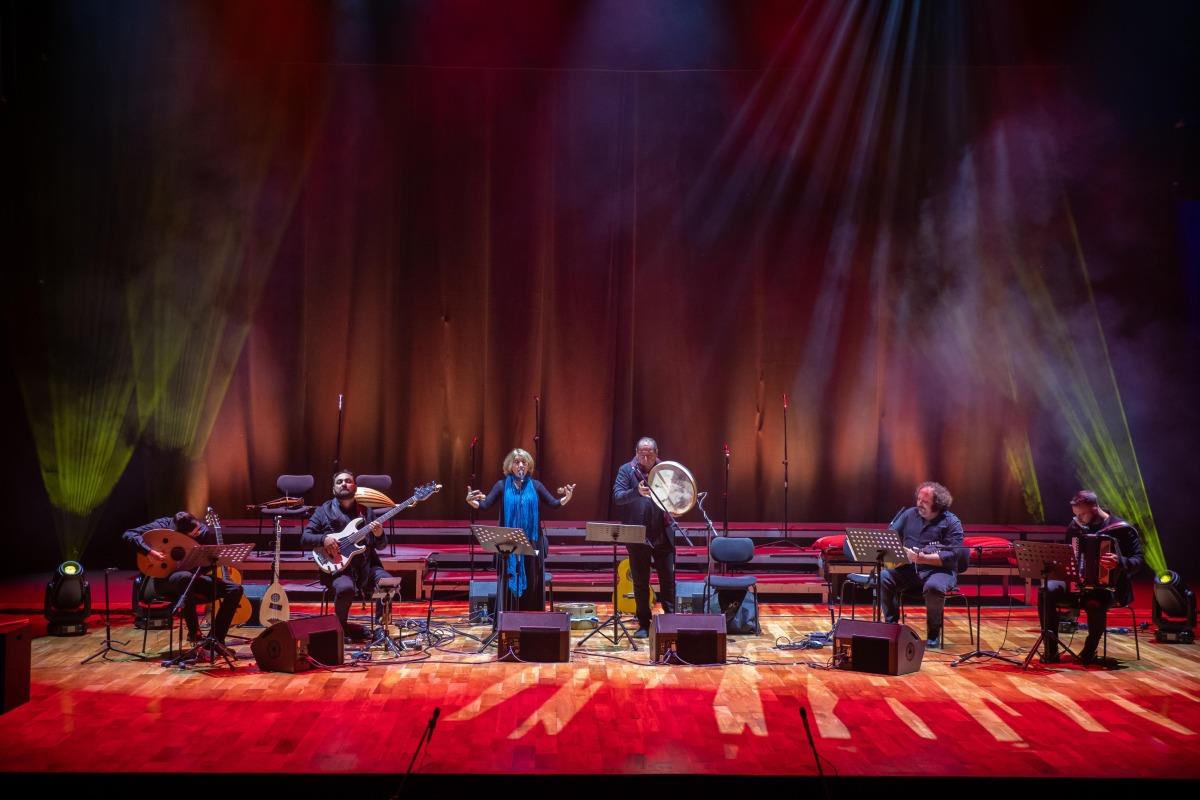
Arab-Mediterranean Shared History Explored In 'Maqam: A Round Trip Between Doha And Naples'
Doha: Katara Cultural Village Foundation hosted on Sunday a musical event organised in partnership with the Embassy of Italy in Doha that celebrated the intertwining of eastern and western musical traditions.
The performance was attended by Director General of the Katara Cultural Village Foundation, H E Prof. Dr. Khalid bin Ibrahim Al-Sulaiti, and the Ambassador of Italy to Qatar, H E Paolo Toschi.
The show titled“Maqam: A Round Trip between Doha and Naples”was a representation of many historical journeys taken; one being the 2500-year-long historical journey that culminated in the creation of the Italian city of Naples (Napoli), and the other being that of a musical scale which had sailed from Mesopotamia and found itself a passage to the shores of Neapolis; the Hellenic term for“new city” from which the name for Naples was derived.
“Naples became, over millennia, a centre for culture in so many ways. From music, to theatre, to literature, engineering, technology,” said H E the Italian Ambassador.
The concept of the“Arab” in western musical tradition has frequently been celebrated, with several composers, from Claude Debussy to Francisco Tarrega, having composed pieces inspired by the image of Arabian culture. Debussy's“Arabesque” for instance, is titled after a word borrowed by the French from Italy, with the original term being Arabseco, meaning“in Arab style.”
The maqam, a musical system that includes the grouping of notes that are responsible for making music“sound Middle Eastern,” was the main character in this event.
H E the Italian Ambassador said that while the show featured melodies prominently belonging to the Italian Neapolitan tradition, embedded within these melodies lies“something very Arabic.”
“One of the greatest contributions of Arab culture to the world of music is the maqam,” said His Excellency.
The show, which incorporates music and narration, follows Salem, an Arab traveler with a magical suitcase containing mystical Arab-Andalusian music, who befriends Pulcinella, a historical Neapolitan folklore figure who dons a black mask and a pointed white hat.
The Arab Ensemble provided the background music for the narrative portion of the show, where Salem and Pulcinella took the stage.
The latter portion of the show was dedicated to the music of the Nando Citarella-led I Tamburi del Vesuvio, who entertained the crowd with several Neapolitan musical pieces while providing audible illustration of the Arabic influence on the music of the people of Naples.
An array of instruments was introduced for the occasion, with oud and violin accompanying the Arab Ensemble, and lute, guitar, bagpipes, accordion, and many other instruments accompanying Citarella's band.
The show weaved narrative into the musical performances through a“false ending” that followed after the two ensembles got together on stage to perform one of the most beloved and well-known pieces of Neapolitan music, Funiculi Funicula.
After taking a bow and seemingly exiting the stage, I Tamburi del Vesuvio was brought back from the shadows by the Pulcinella and Salem characters, who remarked that“the show must not end in talk, but rather in music.”

Legal Disclaimer:
MENAFN provides the
information “as is” without warranty of any kind. We do not accept
any responsibility or liability for the accuracy, content, images,
videos, licenses, completeness, legality, or reliability of the information
contained in this article. If you have any complaints or copyright
issues related to this article, kindly contact the provider above.


















Comments
No comment